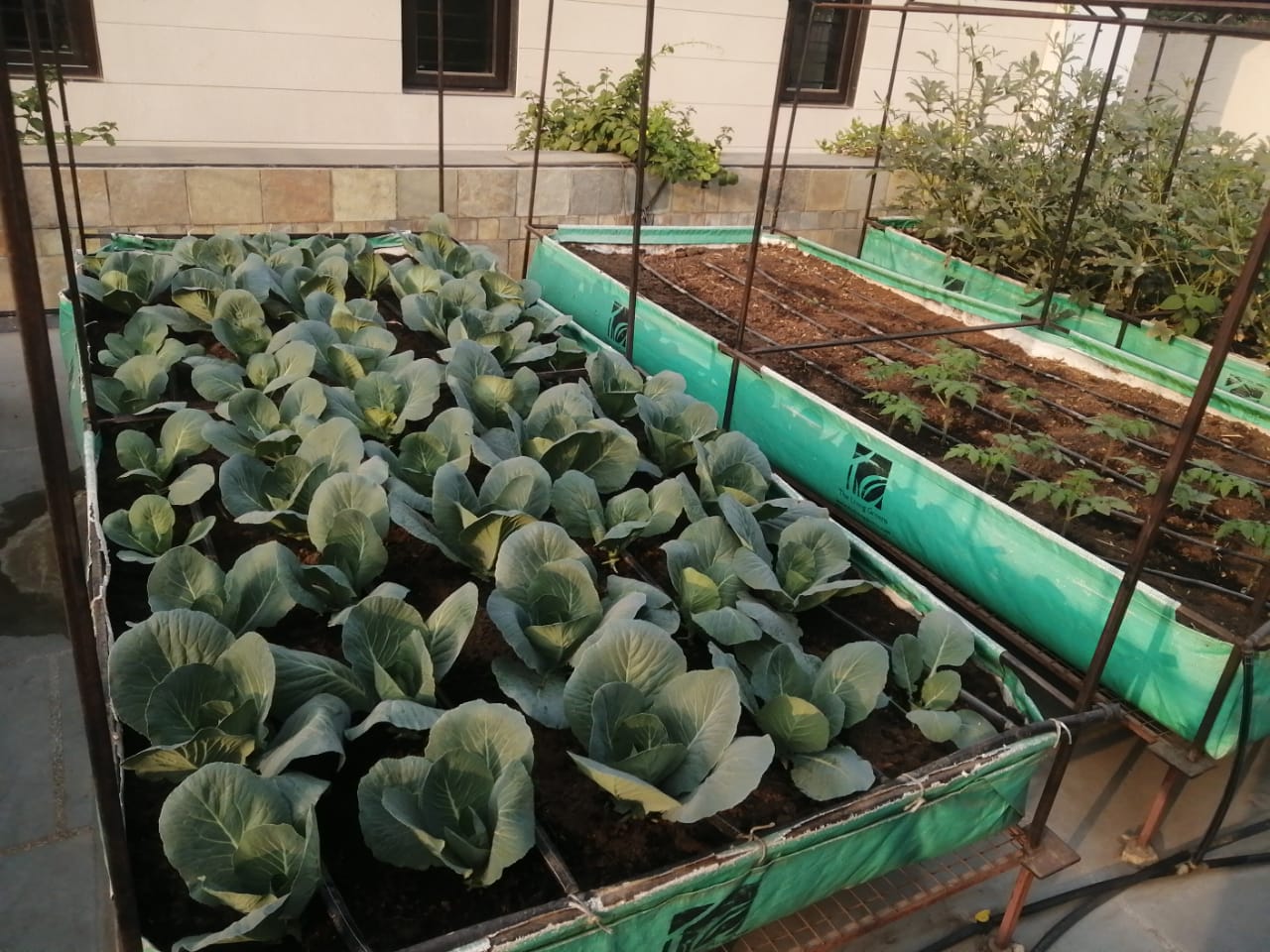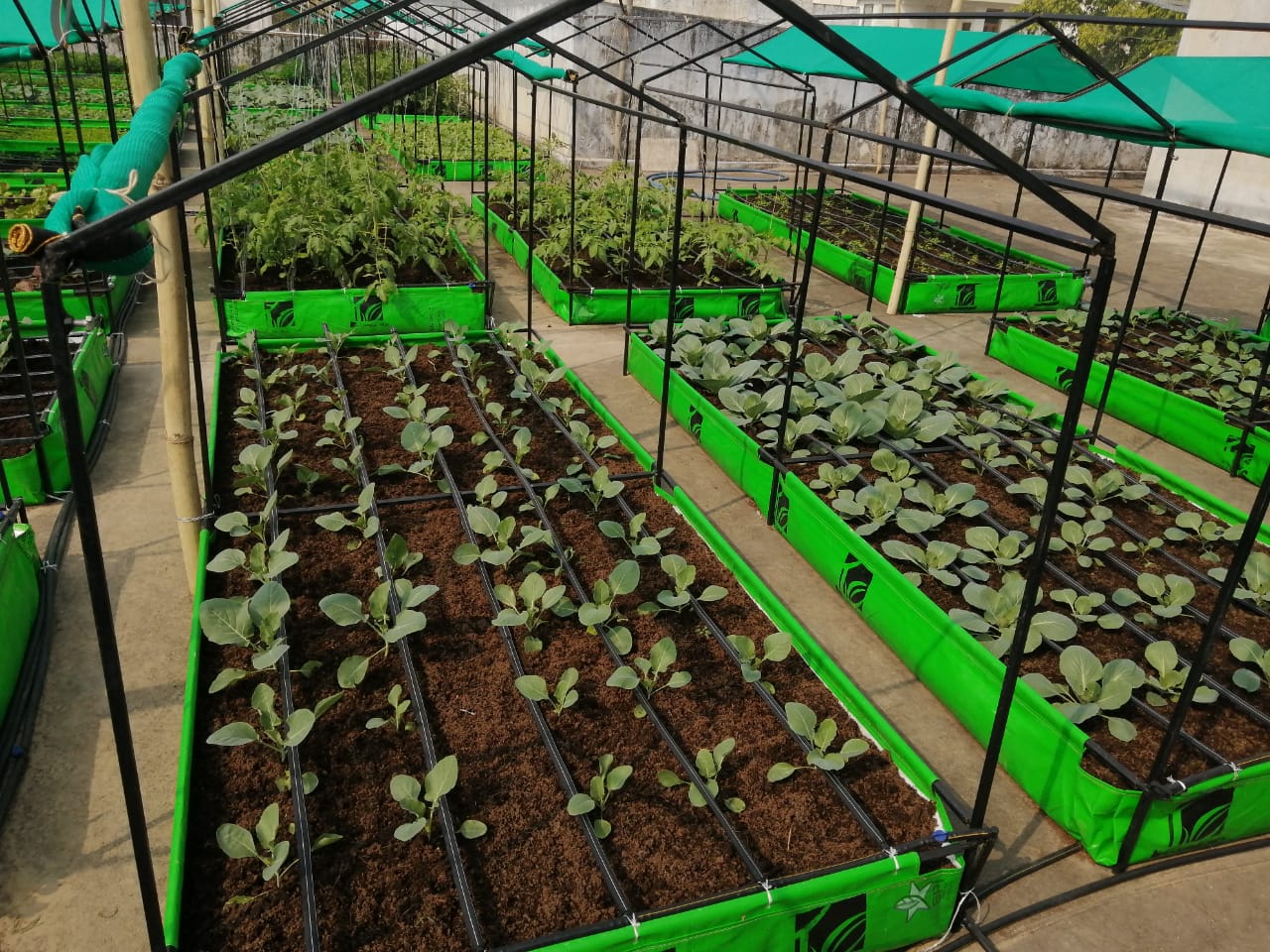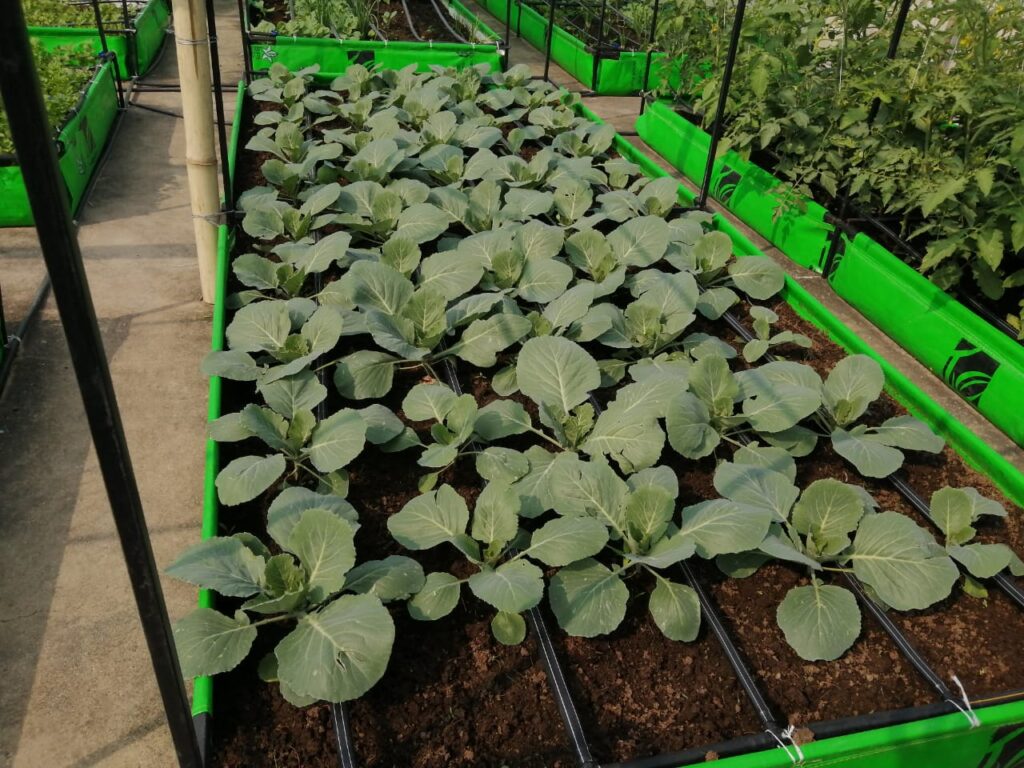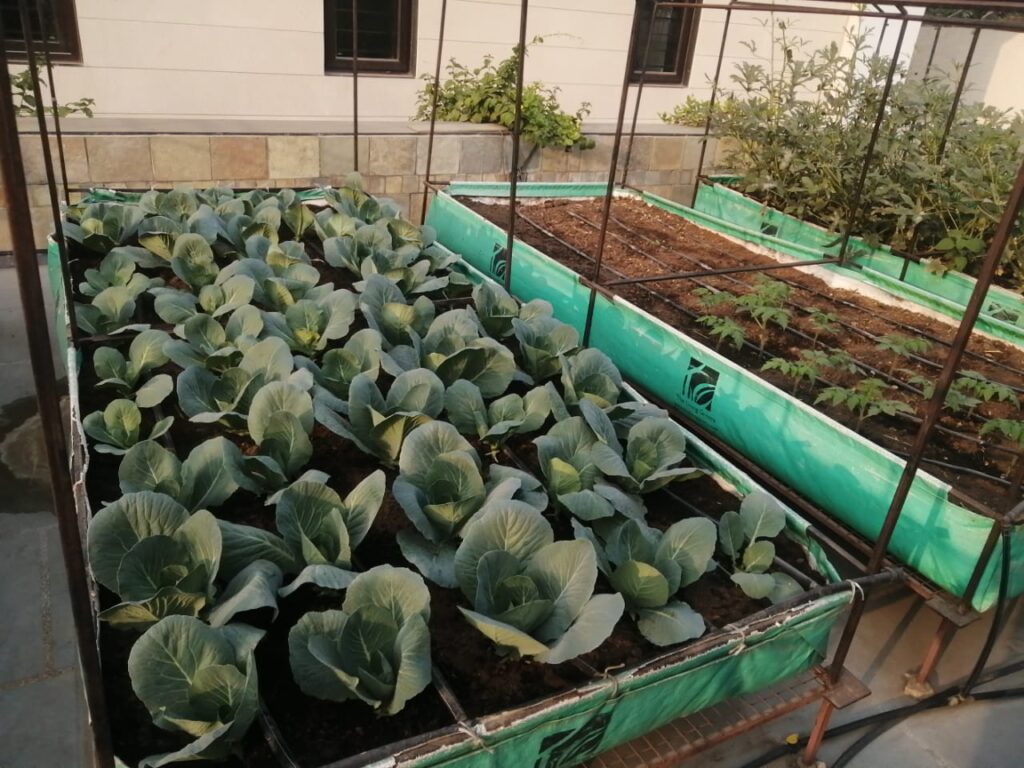Rooftop Farming

What is Rooftop Farming
Rooftop farming, a burgeoning trend, transforms the mundane cityscape into a thriving oasis. Imagine your rooftop not just as a shelter, but a verdant haven where crops sway in the urban breeze. This innovative approach to agriculture defies traditional constraints, bringing fields to the skyline. Rooftop farming seamlessly integrates nature with architecture, cultivating a symbiotic relationship between concrete and greenery.
PORTABLE FARMING SYSTEM
Portable Farming System Portable Farming Systems (PFS) are huge Leak-proof, UV Protected Grow Bags of 10X4 feet to grow lage quantities of Organic Vegetables on Rooftop. These PFS consists of
- Organic Soil-less Medium
- Drip Irrigation System
- Sub-Surface Drainage System
- Organic Sprays
- MS Frame and Green Net
Our solution for rooftop farming
In the urban sprawl where concrete dominates, Living Greens Organics introduces a revolutionary solution – rooftop farming that defies the limits of traditional agriculture. Their innovative approach not only transforms forgotten rooftop spaces into flourishing green havens but also nurtures a sustainable urban ecosystem.
Harnessing the power of organic solutions, Living Greens Organics creates a harmonious marriage between technology and nature. From smart irrigation systems to eco-friendly fertilizers, every element is carefully curated to ensure optimal growth. The result? A vibrant tapestry of greens thriving amidst the urban jungle.

Benefits of converting rooftops into organic farms
In a groundbreaking urban initiative, rooftops are shedding their concrete shackles to embrace a green revolution. The concept of converting rooftops into organic farms is not merely about sustainability; it's a paradigm shift towards cultivating a symbiotic relationship between urban dwellers and the environment.
Imagine walking through a bustling cityscape, and above, vibrant rooftop gardens flourish. These suspended farms not only provide fresh produce but also act as natural air purifiers, mitigating the concrete jungle's carbon footprint.
This innovative approach not only redefines urban landscapes but also fosters community engagement. Residents become stewards of their rooftop oases, fostering a sense of shared responsibility and connection.
As we elevate our living spaces, we also elevate our commitment to a greener, healthier future. Rooftop farming emerges as a testament to our ability to coexist harmoniously with nature in the heart of the concrete jungle.
Environmental benefits of rooftop farming
Rooftop farming emerges as a verdant oasis in the concrete jungle, offering a symphony of environmental benefits.

Rooftop farming emerges as a verdant oasis in the concrete jungle, offering a symphony of environmental benefits. As urban landscapes expand, these elevated gardens become not just a feast for the eyes but a salvation for the planet. With a green thumb reaching towards the sky, rooftop farming breathes life into the heart of cities, mitigating carbon footprints and reducing the urban heat island effect.
By harnessing the sun’s energy atop buildings, these cultivated terrains act as natural insulators, lowering energy consumption. The symbiosis of flora on rooftops aids in air purification, transforming carbon dioxide into life-sustaining oxygen. Stormwater runoff is curtailed, diminishing the strain on overwhelmed urban drainage systems. Embracing rooftop agriculture isn’t merely a trend; it’s a pledge to nurture the environment, turning city rooftops into thriving ecosystems that echo nature’s resilience amidst the urban cacophony.


Economic benefits of rooftop farming
Rooftop farming isn't just a green trend; it's an economic powerhouse poised to redefine urban landscapes. Beyond cultivating organic produce, these elevated gardens sprout economic benefits. Firstly, they reduce energy consumption by acting as natural insulators, cutting down on heating and cooling costs for buildings. Additionally, rooftop farms transform underutilized spaces into revenue streams, increasing property values and rental income. Moreover, local businesses benefit from a fresh supply of hyper-local produce, fostering a sense of community and supporting the economy. The reduced strain on transportation diminishes carbon footprints, saving cities money on infrastructure maintenance.
The future of rooftop farming
In the ever-evolving landscape of urban sustainability, rooftop farming emerges as a beacon of hope and ingenuity. Imagine a city skyline transformed into a lush mosaic of green, where skyscrapers wear crowns of vibrant crops instead of concrete. Rooftop farming isn't just a trend; it's a visionary response to feeding growing urban populations while mitigating environmental impact. In this agrarian skyward revolution, buildings cease to be mere structures; they metamorphose into bustling ecosystems, fostering biodiversity and fostering a sustainable symbiosis between urban life and agriculture. Rooftop farming isn't just a practical solution; it's a poetic reimagining of our connection with food and the environment, where the sky becomes a canvas for a greener, more resilient future.

